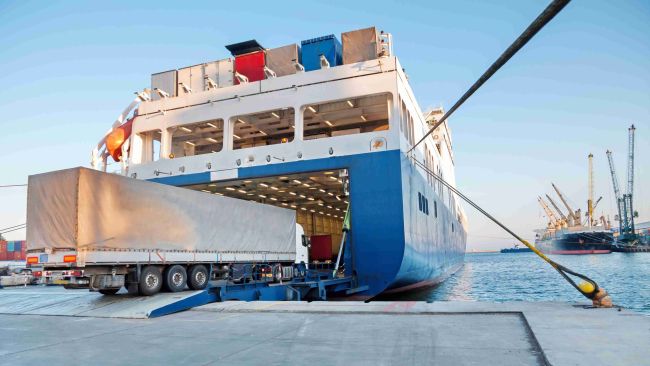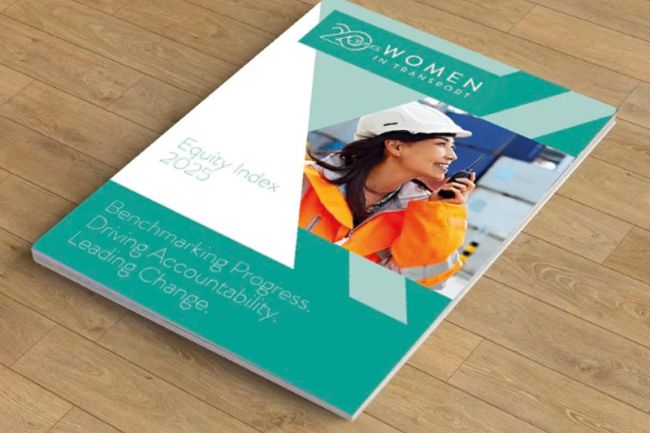The European Green Deal: opportunities for the transport sector
The Green Deal can offer new opportunities for transport players to deliver innovation.

The European Green Deal is the new plan that the European Commission launched to face climate change and global warming. It sets a new European growth strategy aimed at Net Zero emissions of greenhouse gases by 2050. Its core value proposition is coupling resource use and economic growth, and guiding a just and inclusive transition to a sustainable Europe.
Following its announcement in December 2019 by the European Commission President Ursula von der Leyen, the Green Deal attracted media, industry and political attention due to its financial magnitude and broad scope across sectors and industries. EU short term priorities are understandably focused on managing the impact of the COVID-19 pandemic, but the agenda addressed by the Green Deal will remain important for the longer term. In late March, members of the European council jointly stated that the EU green transition will be integrated into the measures necessary to get back to the normal functioning of our societies and economies and to underpin sustainable growth.
The transport sector plays a key role in the Green Deal which sets the ambitious goal of 90% reduction in transport emissions by 2050. The Green Deal road map specifically includes priority actions for sustainable and smart mobility. These concern the adoption of a new European strategy, plus funding for transport infrastructure and services, as well as revised European Directives and Regulations.
The Green Deal can bring opportunities to public and private transport players in the road, rail, aviation, and waterborne sectors. These concern investment decisions and, more generally, the capacity to innovate and deliver infrastructure and services which not only comply with legal requirements but more generally with an enhanced valuation of environmental and health assets by citizens and transport users.
For example, buses are an important component of the urban transport system and have a critical role to play in improving emissions in urban areas. Operating throughout the day, with a particular focus in city centres, the change from diesel to zero-emission technology can make a significant contribution to meeting air quality standards. These local benefits are important, but they need to be underpinned by investment in renewable energy: otherwise, the source of pollution is simply transferred elsewhere.
While several large Chinese cities now have all-electric fleets, progress in the rest of the world has been markedly slower. There have been many pilot projects, but large-scale implementation is necessary to maximise efficiency and cost-effectiveness.
Targets are being set for removal of diesel-powered buses at national and city level. The mayors of London, Paris, Madrid, Mexico and Vancouver (among others) have already pledged to procure only zero-emission buses from 2025. Others have gone further, with Amsterdam, Copenhagen and Los Angeles intending to transition fully by 2030 or sooner.
However, Governments also need to make a commitment to supportive policies. Electric and hydrogen buses have a substantially higher capital cost than the traditional diesel option. This means that political support needs to be backed by making capital available for a greener fleet, supporting depot facilities and charging infrastructure. Current rules, tax rates or exemptions often favour the use of fossil fuels and need to be rewritten to improve the economics of operating zero-emission alternatives.
If governments are able to provide these funding incentives and to de-risk certain elements of projects, then there is a growing supply of private capital seeking climate-friendly investments through debt instruments such as green bonds and sustainability-linked loans (which reduce interest cost when the borrower hits key sustainability targets) and equity from so-called ‘impact funds’. For example, the green bond market has witnessed significant growth with roughly $200 billion of issuances in 2019, which represents year-on-year growth in issuances of 50%. All these products have generated interest as institutional investors (such as pension funds and insurers) strive to reflect the ethical demands of their customers in their portfolios.
Structuring projects with a view to accessing these sources of finance could help governments share the upfront capital funding requirement and share some of the financial risks of introducing new technology. However, governments need to structure their projects carefully in a way that ensures, on one hand, that they are bankable and attractive to these investors but, on the other hand, do not undermine affordability, given that any form of private finance is nearly always more expensive than public finance.
The Green Deal is still at an early stage. Nevertheless, its vision is being translated into funding programmes including European support for transport projects:
- a share of the EU budget will be distributed across multiple funds, including the European Regional Development Fund, the Cohesion Fund, the Horizon Europe and Life funds; and the EU has been working towards a renewal of the Connecting Europe Facility Transport Programme for the period 2021-2027.
- the InvestEU Fund will follow-up the Investment Plan for Europe (the “Juncker plan”) with the objective of simplifying the current framework of EU financial instruments. Key policy areas include sustainable infrastructure, research, innovation and digitisation. It seeks to provide budget guarantees to reduce the risk in financing and investment operations.
- the Just Transition Mechanism will provide support for more carbon-intensive regions and sectors.
- the Innovation and Modernisation funds focused on innovative low-carbon technologies in energy-intensive industries.
Navigating the complexity of European funding and assessing investment risks can be challenging, but the Green Deal can offer new opportunities for transport players to deliver innovation and support transport investment strategies to promote sustainable economic recovery.





















